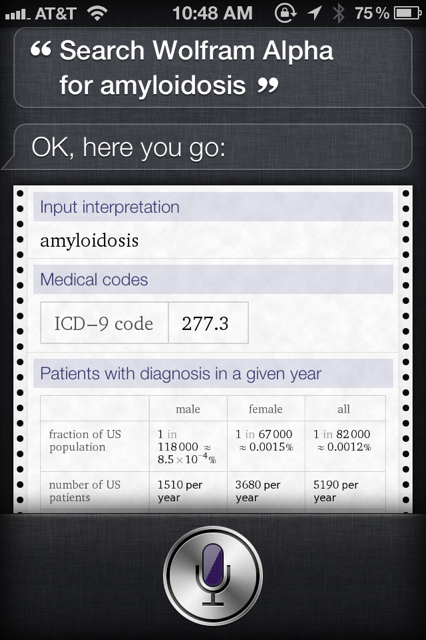Okay now you know where Apple fits in the African equation. Moving on, Siri is a voice controlled personal assistant that ships with the iPhone 4S. It has captivated the hearts of developers, tech enthusiasts and of course Apple fan boys with it’s advanced speech recognition capabilities and Artificial Intelligence(AI). When you ask siri a question like “what’s the population of the world”, it’ll search yahoo, Google, yelp, wolfram and apple’s own info databases and speak the exact answer back to you. So how could siri-like technology revolutionize information access here?
- It’s a Mobile phone technology That’s the most important point. Google search predominantly runs on or requires a computer which has alienated a vast majority of Africans who own and use mobile phones than PCs from accessing the world’s sea of knowledge and information. However, one can argue that it also runs on mobile phones, I will get to that. Now we know that in Africa, the Mobile phone beats the PC hands down to such an extent that it’s a house hold item even in almost every African home. Siri purely runs on mobile phone – the iPhone.
- It’s an invisible/voice interface While Google search can also run mobile phones, it requires a web browser and that’s a problem. The not so computer literate Africans will have to first learn that – you surf the web using a web browser like Opera mini, then you’ll have to type the website URL like www.google.com in the address bar and then hit go and wait for results in form of links which you’ve to click and hopefully get what you want. All that presents a learning curve that users have to first be taught and then get used to. My experience with the way our people relate with technology is that you have to show them how to use it first, however dead-simple it may seem to you. My Dad, now retired upcountry is a tech enthusiast who is always asking me about the internet. Much as he is a highly educated man, He’s not that PC literate. So every time we meet I’ve to go through these terms again and again. With Siri, there are no web browsers, URLs and links to learn about. Just speak and the answer is spoken back to you. Now don’t get me wrong, all these wonderful tools that you and I use to surf the web are important. However, there is segment of people – the not so PC literate that can over step the learning and getting used requirement of these tools and get straight to the information they need or want through interfaces or apps that make that possible such as Siri.
- Gives direct results Unlike Google search results, there are no links that a user has to follow to finally and hopefully get what they’re looking for. With Siri, the data crunching as explained above is done transparent to the user and only the final answer is returned. The next time I met with my Dad, I fired up Iris – Android’s answer to Siri and told him to just speak. An Obama fan he asked Iris “tell me about Barack Obama” and he was surprised to hear Iris speak back to him – no more than a short three sentence extract about Obama from Wikipedia. This time, no browser, no URLs, no links, no search results. No need of the knowledge of Wikipedia, wolfram, yahoo answers or any other online knowledge resource out there. Only his question and the answer through an interface accessed naturally through human speech. At first when I had about Siri, I quickly dismissed it as one of those overly hyped and well marketed Apple products. Infact, I had a heated argument with a close friend of mine who is an all time Apple fan boy. But eventually, with close analysis, I have come to realize that Siri in fact poses a new era, a new way that Africans can and will access online information in a totally abstract way. Although I highly doubt that Africans or more specifically Ugandans will use Siri on iPhone 4S, Siri alternatives like Android based Iris whose first version was created in 8 hours after after Siri’s release, will shape how we access information. Even Eric Schmidt Google’s executive chairman acknowledged that indeed Siri is a game changer and could potentially disrupt Google’s ad business model. Smart phone manufacturers like Samsung, China’s Huwaei and ZTE are already making serious in roads in the African market. Vendors have a tendency of completely ignoring the African market in application and interface design, but I think that phone vendors, network operators have to rethink the most viable internet browser for the African market. I think it’s a voice based app like Siri or Iris because all you need is the ability to speak and listen Period.

